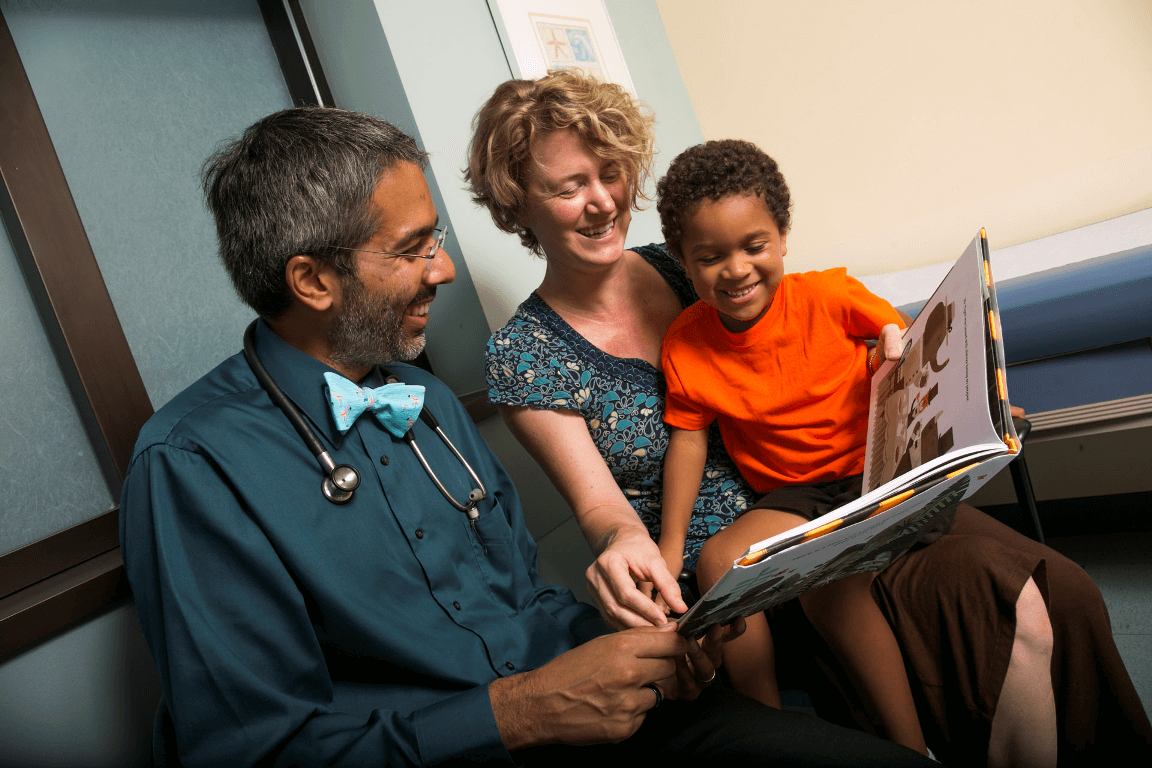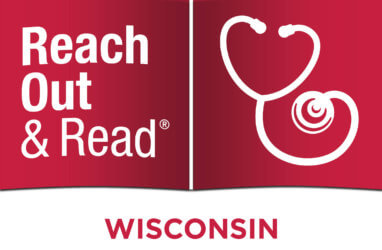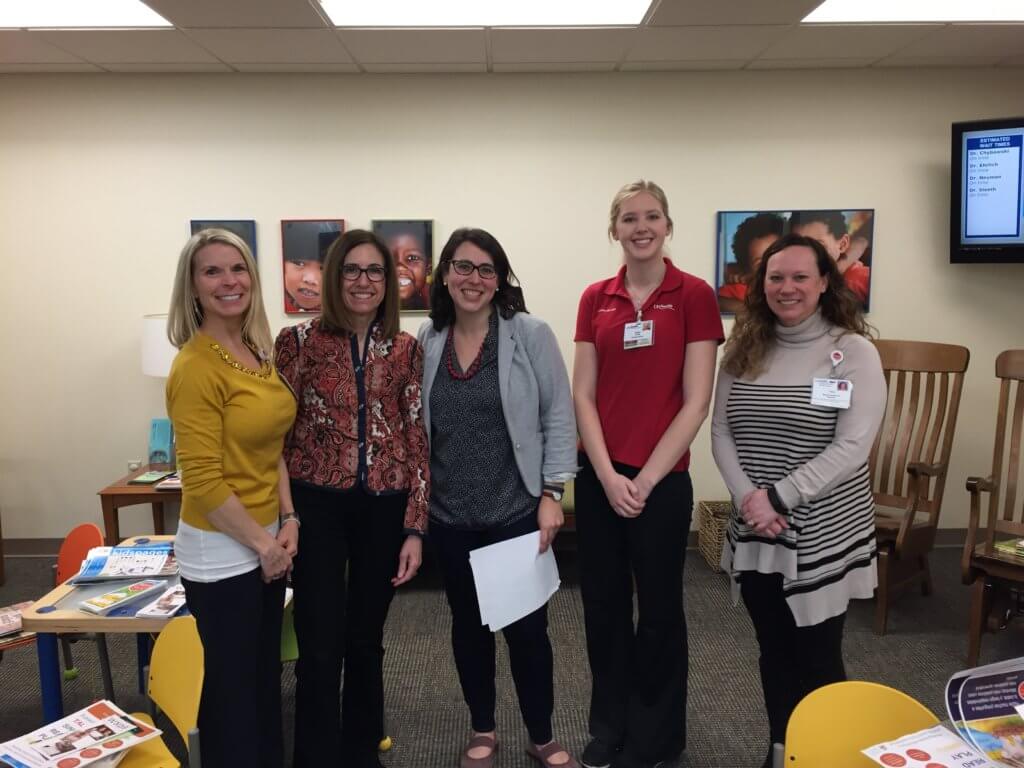Reach Out and Read national medical director Perri Klass, MD, recently visited Madison, Wisconsin to give a presentation to Reach Out and Read Wisconsin supporters and stakeholders. During this talk at the Madison Central Library, Dr. Klass emphasized the importance of using books to promote healthy brain development in young children. One of the ways reading aloud supports brain development is through the parent-child relationship. “If we want to promote healthy child development in the early years, then we have to promote that parent-child relationship,” said Dr. Klass.
Books aid in the development of the parent-child relationship because they spark back-and-forth conversations. These conversational turns are what form connections in babies’ brains. Even young babies who are not themselves talking yet, show signs of engagement when these back-and-forth interactions are happening. Examples of this include, smiling at a book or the parent, looking at the pictures, reaching out to grab the book, trying to turn pages, cooing or babbling along with the story, or even trying to put the book in their mouth.
When parents read aloud they are not only helping foster brain development but development in all kinds of areas, like math, language, vocabulary, socio-emotional, school readiness and attachment.

Screen time
Dr. Klass also shared her thoughts about screen time and e-readers. She recommended physical books for newborns and children younger than age 2. Physical books allow babies to touch, feel, learn how to turn pages and put books in their mouths – all of which are appropriate developmental milestones for young children. Screens and enhanced e-books (stories that make sounds when tapped or have animations) can be distracting for young babies. New research shows that when e-readers are used, the number of conversational turns and back-and-forth interactions between parents and children decrease. Dr. Klass recently wrote about this new research in her weekly New York Times column.
When kids are older, using electronic reading devices can help them gain access to a wide range of information. However, it is still important for parents to provide supervision and make time for reading physical books aloud together.
Reach Out and Read Wisconsin would like to thank Dr. Perri Klass for sharing her time and expertise. Also, thank you to the Wisconsin Academy of Sciences, Arts & Letters and the Madison Public Library for co-presenting this event. To learn more about Reach Out and Read Wisconsin and how to support us our work, please visit our website.












